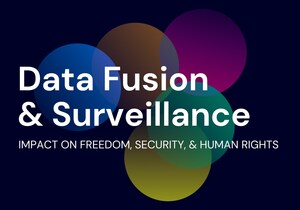Carnegie Council Conference Focuses on U.S/Russia Relations, the Treaty of Conventional Forces in Europe (CFE), Arms Reduction, the Arctic, and the Russian and U.S./NATO Experiences in Afghanistan
NEW YORK, Oct. 12, 2011 /PRNewswire-USNewswire/ --The Carnegie Council for Ethics in International Affairs presents a selection of online materials from the conference entitled "Carnegie Council's Program on U.S. Global Engagement: a Two-Year Retrospective."
The conference took place at the Pocantico Center of the Rockefeller Brothers Fund from June 1-3, 2011. Organized by the Carnegie Council in cooperation with the U.S. Army War College, the conference served to review and report on two years of program activity, and to generate new ideas and resources among an international group of leading scholars and practitioners from North America, Russia, and Europe.
Many of the papers and keynote speeches are available online, at carnegiecouncil.org/resources/picks/0029.html.
The topics covered include the Treaty of Conventional Forces in Europe (CFE), with papers from three perspectives—American, British, and Russian. Respectively, the authors were Carnegie Council Senior Fellow Col. Jeffrey D. McCausland (Ret.); Professor Paul Schulte of University of London's School of Oriental and African Studies (SOAS) and of Carnegie Endowment for International Peace; and Sergey Rogov, director of the Institute of U.S. and Canadian Studies of the Russian Academy of Sciences.
Stephen J. Blank of the Strategic Studies Institute of the U.S. Army War College presented a paper on arms control and proliferation challenges to the "Reset Policy," and Alexandra I. Toma, of the Connect U.S. Fund, contributed one on the ethics of the Nuclear Security Summit Process.
There were also two papers on cooperation and competition in the Arctic region, one from Russian Pavel K. Baev, who is currently a research professor at the Peace Research Institute, Oslo, and another from Michael Byers, of the University of British Columbia, Canada.
Andrew Kuchins of the Center for Strategic and International Studies (CSIS) contributed a paper examining the differences and similarities between the Soviet and the U.S./NATO experience in Afghanistan.
The Carnegie Council website also features keynote speeches by Angela Stent, Georgetown University, and former U.S. Ambassador to the USSR Jack F. Matlock, along with wrap-up speeches from Thomas E. Graham of Kissinger Associates Inc., and Nikolas K. Gvosdev of the U.S. Naval War College.
The Carnegie Council for Ethics in International Affairs (www.carnegiecouncil.org), established in 1914 by Andrew Carnegie, is an independent, nonpartisan, nonprofit organization dedicated to increasing understanding of the relationship between ethics and international affairs.
SOURCE Carnegie Council for Ethics in International Affairs
WANT YOUR COMPANY'S NEWS FEATURED ON PRNEWSWIRE.COM?
Newsrooms &
Influencers
Digital Media
Outlets
Journalists
Opted In





Share this article